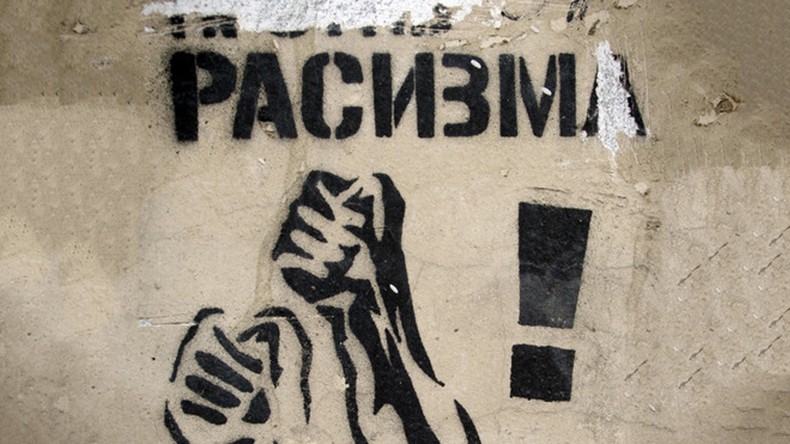
Secretary General of CoE: Rise in racism and intolerance observed in Azerbaijan
Serious and systematic problems in human rights and freedom of speech situation in Azerbaijan remain unaddressed to date, in spite of numerous efforts by international stakeholders, Secretary General of the Council of Europe, ThorbjørnJagland, states in his annual report “State of democracy, Human Rights, and the Rule of Law.”
In the section dedicated to the safety of journalists, the CoE Secretary General expresses concern regarding the arbitrary application of the law in Azerbaijan, notably to limit freedom of speech. He particularly reminds journalist Khadija Ismayilova, who was convicted on trumped-up charges, as well as the unfulfilled ECHR decisions on journalists Mahmudov, Agazade and Fatullayev’s cases.
According to the report, the Azerbaijani authorities have adopted policies that aim to strengthen control over online content, in order to prevent the dissemination of prohibited materials. As a result, the government “controls most media outlets and censors content both offline and online,” despite the fact that Council of Europe bodies have repeatedly called on the authorities of Azerbaijan to improve respect for freedom of expression.
The author also covers problems connected with freedom of assembly in Azerbaijan. He notes that the system of notification in the country should be applied in accordance with European standards. However, the Law on Freedom of Assembly in Azerbaijan does not consider whether the demonstration is peaceful, or threatens the public order. In addition, demonstrations in central locations of the city are banned. The use of force to disperse the demonstrations, arrests, and harsh sentences also raise serious concern.
In Azerbaijan, journalists or medical personnel – the latter clearly identifiable by their clothing – have also been victims of excessive force used against them during protests. The Secretary General sets the example of the case Najafli v. Azerbaijan. The journalist was beaten by the police while covering an unauthorized demonstration in Baku.
The Secretary General is concerned by “harshening of the fines and the use of administrative detention against those who organize or participate in ‘unauthorised’ public gatherings,” as well as the “reported non-implementation of due process standards in proceedings brought against participants in ‘unauthorised’ demonstrations.” For example, in three judgments against Azerbaijan, the Court found violations of Article 3 of the Convention (prohibition of inhuman or degrading treatment) … due to excessive use of force against the applicants by law enforcement officials during demonstrations.
The Secretary General notes that the laws on non-governmental organizations (NGO) are worded in general terms, giving rise to diverging interpretations by courts and law-enforcement bodies and affording unlimited discretionary power to public authorities.
NGOs in Azerbaijan face difficulties with regard to the restrictive application of the regulations on registration. In some cases, additional administrative requirements are imposed on a selected number of NGOs with regard to the registration as legal entities. Heavy fines and freezing of their bank accounts also restrict the scope of their activities.
The author reminds that in its Resolution 2062 (2015), the Parliamentary Assembly condemned the crackdown on human rights in Azerbaijan where working conditions for NGOs and human rights defenders have significantly deteriorated and some prominent and recognized human rights defenders, civil society activists and journalists are behind bars. Reports by human rights defenders and international NGOs prove the increase in criminal prosecutions against NGO leaders, journalists, lawyers and others who express critical opinions.
In Azerbaijan, the OSCE/ODIHR decided to cancel its observation mission due to restrictions imposed by the authorities; this, in turn, limited the scope of the PACE election observation mission. The author emphasizes that in such conditions, it is hard to assess the transparency of elections in the country. He adds that impartial access to media by the political parties, lack of independence of journalists, cases of intimidation of journalists, transparency of media ownership and unbalanced media coverage undermined the principle of equality of suffrage in Azerbaijan.
Summing up, Jagland notes that a general rise in racism and intolerance has been observed in Azerbaijan, as there is no independent body with competence to deal with discrimination in both the public and the private sectors.
Related news
- OCCRP: Bribing Congressmen, Azerbaijan and Turkey try to intervene in US policy and hoodwink the American public
- US Department of State: Serious human rights violations observed in Azerbaijan during 2015
- Freedom House: Huge wave of nationwide protests to spread across Azerbaijan amid mounting crisis in 2016
Newsfeed
Videos






























